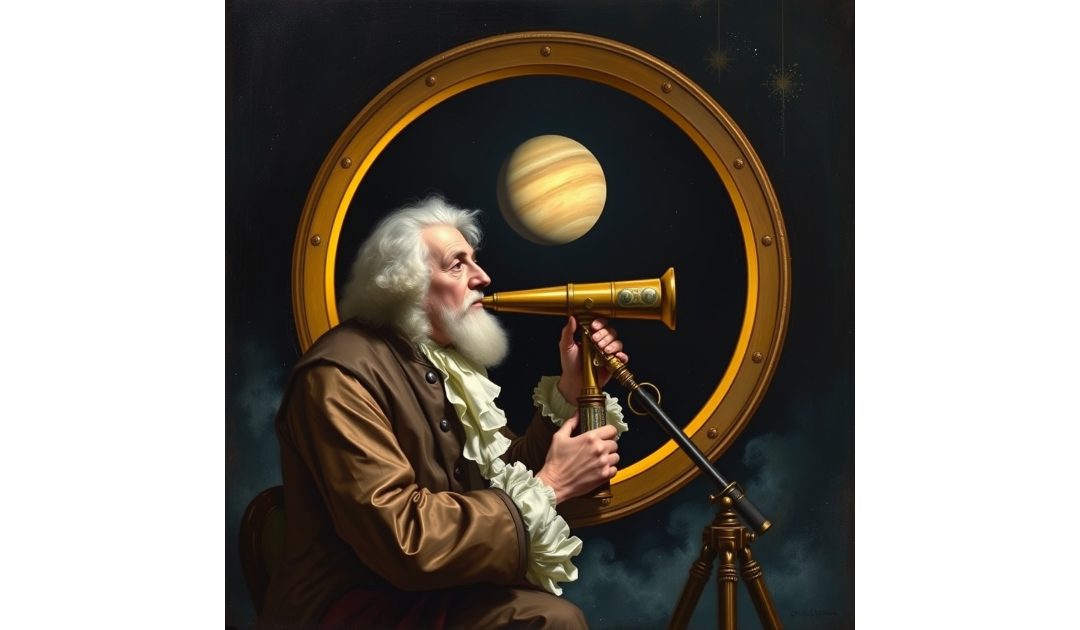I’ve posted about astronomy before, and here’s another one. On 23rd December 1690 John Flamsteed observed Uranus without realising that it he was the first to observe it. John Flamsteed (1646-1719) was an influential English astronomer, best known as the first Astronomer Royal. Born in Denby, Derbyshire, he displayed an early interest in astronomy, which led him to pursue studies at the University of Cambridge. Flamsteed’s dedication to the field was evident as he meticulously observed the night sky, focusing on the positions of stars and planets.
In 1675, Flamsteed was appointed the first Astronomer Royal by King Charles II, a position that allowed him to establish the Royal Observatory in Greenwich. This observatory became a pivotal institution in the history of astronomy, providing a base for precise astronomical measurements. Flamsteed’s work at Greenwich was groundbreaking; he aimed to create a comprehensive star catalog that would aid navigation and improve the accuracy of celestial observations.
Flamsteed’s most significant contribution was his catalog of over 3,000 stars, published posthumously in 1725 as “Historia Coelestis Britannica.” This catalog was notable for its precision and for including stars that had not been previously documented. Flamsteed’s observations were crucial for the development of celestial mechanics and navigation, particularly in the context of maritime exploration during the Age of Discovery.
Despite his achievements, Flamsteed faced challenges, including conflicts with contemporaries such as Isaac Newton. Flamsteed was a staunch advocate for observational astronomy, while Newton’s theoretical approach often overshadowed the observational data Flamsteed had painstakingly collected. Their rivalry culminated in Flamsteed’s frustration over the publication of Newton’s “Principia Mathematica,” which used some of Flamsteed’s data without proper acknowledgment.
Flamsteed’s legacy extends beyond his catalog; he was also instrumental in the development of more accurate timekeeping methods. His work laid the groundwork for the establishment of the prime meridian at Greenwich, which became the basis for the world’s time zones.
John Flamsteed passed away in 1719, leaving behind a rich legacy in the field of astronomy. His meticulous observations and commitment to accuracy not only advanced the science of astronomy but also significantly impacted navigation and timekeeping. Today, Flamsteed is remembered as a pioneer whose contributions helped shape the modern understanding of the cosmos. His work continues to be celebrated for its precision and dedication to the empirical study of the heavens.

